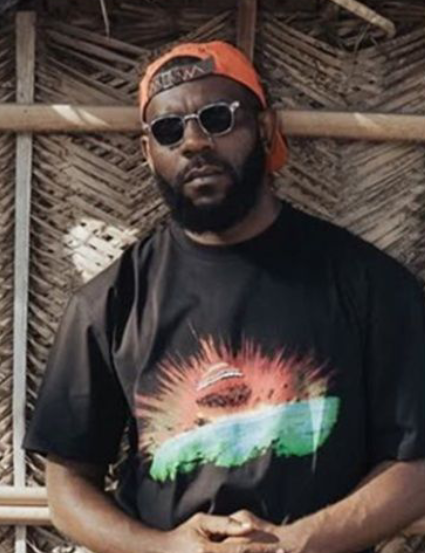
Pity the Parents: Odumodublvck’s Bold Call for NYSC Reform Sparks National Debate Amid Rising Insecurity

Nigerian rapper Odumodublvck has once again stepped into the public conversation—this time wading into one of the country’s most sensitive and emotionally charged topics: the safety of young Nigerians deployed for the National Youth Service Corps (NYSC). In a passionate statement shared online, the rapper urged the NYSC to immediately suspend the long-standing practice of posting graduates to states far from their homes, citing the alarming rise in insecurity across the nation. His message, raw and direct, has since ignited nationwide debate, pulling in parents, youths, policymakers, and security analysts.
The rapper, known for his fearless commentary on social and political issues, registered his concerns in a post directed at the NYSC’s official handle. He wrote, “Please, it’s high time we suspend the posting of our youths to different states other than where they are based. It all started off as a brilliant idea but now with the state of our country, it’s not sustainable. Please pity the parents. Kids are d—. Move with the times.” Though his message ended abruptly, the weight of those words has resonated deeply. For many, it captures the collective fears Nigerian families now live with every day—a reality shaped by kidnappings, terrorism, violent attacks, and volatile inter-state travel conditions.
Odumodublvck’s appeal did not come out of a vacuum. The insecurity crisis in Nigeria has created a climate where traveling between states now feels like a high-risk endeavor for even the most experienced adults, let alone fresh graduates leaving home for the first time. Over the past few years, there have been numerous reports of NYSC members being kidnapped on their way to orientation camps, attacked while serving in rural communities, or caught in violent clashes in unfamiliar territories. Each incident sends shockwaves through thousands of Nigerian households, but the system has largely continued unchanged. For many observers, the rapper’s statement simply vocalized what countless citizens have been quietly nursing for years.
Parents, especially, have rallied around his sentiment. For them, the NYSC, once seen as a patriotic tradition with enormous benefits—unity, cultural exchange, and national integration—has slowly turned into a source of dread. Mothers and fathers who once proudly dropped their children at bus parks now accompany them with trembling hands and silent prayers. The thought of sending their child hundreds of kilometers away, through highways known for bandits, into communities battling unrest, has become almost unbearable. Odumodublvck’s plea to NYSC to “pity the parents” cuts straight into this emotional core: the fear that any goodbye could be the last.
Critics of the current NYSC model argue that it operates as though Nigeria is still the relatively peaceful nation it was in the 1970s when the scheme was introduced. Back then, the program was designed as a unifying mechanism after the civil war, encouraging young Nigerians to experience different ethnic cultures and foster national cohesion. The idea worked for many years, but the country has changed dramatically, and insecurity has transformed vast portions of Nigeria into danger zones. The rapper’s urging to “move with the times” underscores the need for policy evolution—a recognition that while NYSC’s goals remain noble, its operational method may no longer be suitable for present realities.
On social media, the reaction to Odumodublvck’s message has been explosive. Youths currently serving, those expecting call-up letters, and even ex-corps members have flooded comment sections with their personal experiences. Some shared terrifying stories of bandit attacks during interstate travel, while others recalled nights spent in anxiety due to nearby gunshots in the communities where they were posted. Meanwhile, several parents wrote about the emotional toll of waiting up every night just to be sure their children survived yet another day in unfamiliar territory. For many of these commenters, the rapper didn’t just start a conversation—he voiced a collective crisis.
However, not everyone agrees with scrapping interstate posting entirely. A faction of Nigerians argue that the NYSC’s cross-state deployment remains essential for national cohesion. To them, restricting corps members to their states of residence could reinforce ethnic divisions and weaken the sense of shared identity the program was built to promote. They insist that instead of stopping postings, the government should prioritize improving national security, increase protection for corps members, and strengthen coordination between security agencies and NYSC officials. This camp warns that adjusting the NYSC structure without addressing the root causes only treats the symptoms, not the disease.
But the counter-argument raises an uncomfortable question: How long should the nation wait for security to improve? Parents are already losing children. Young people sent out to serve their country are increasingly returning home in body bags or not returning at all. And every new tragedy pushes more Nigerians to question whether national unity must come at the cost of young lives. As one commentator put it, “NYSC is supposed to build a future, not bury it.” Odumodublvck’s call may not offer a perfect solution, but it forces the country to confront a painful truth—one that policymakers have long sidestepped.
Security analysts weighing in on the issue have acknowledged that Odumodublvck’s concerns are valid. Many argue that even soldiers and police officers avoid certain locations due to extreme risks, making it unreasonable to deploy unarmed graduates to these same areas. Others emphasize that the constant fear experienced by corps members undermines the objectives of the program. Instead of learning, integrating, or contributing meaningfully to their host communities, many spend their service year simply trying to stay alive, counting down the months until they can return home safely.
The NYSC management, for its part, has consistently maintained that the scheme remains safe and that every measure is taken to protect corps members. But Nigerians increasingly view these assurances as hollow, especially when new incidents surface frequently. Without widespread infrastructure, reliable security systems, and safe major roads, the promise of protection feels largely theoretical. The reality on the ground tells a very different story.
As Odumodublvck’s message continues to dominate online spaces, the pressure is mounting on the federal government and NYSC authorities to rethink the model. Whether they choose to modify deployment rules, give corps members state-of-origin options, or temporarily suspend interstate postings entirely, one thing has become clear: the current NYSC structure is no longer aligned with the country’s security climate. The call for reform is no longer a suggestion—it’s an urgent plea.
In the end, the rapper’s message arrives at a crucial moment. Nigeria is at a crossroads. With insecurity reshaping almost every aspect of daily life, the nation must decide what risks are acceptable in the name of tradition, and which ones are simply too great. Odumodublvck’s appeal is not just a celebrity’s opinion; it is a reflection of a nation’s collective fear and exhaustion. It forces the question no one has wanted to confront: How many more children must be put in harm’s way before something changes?
Whether or not the NYSC will “move with the times” remains to be seen. But for now, Odumodublvck has reignited a conversation that is long overdue—and millions of Nigerian parents are hoping the authorities finally listen.


